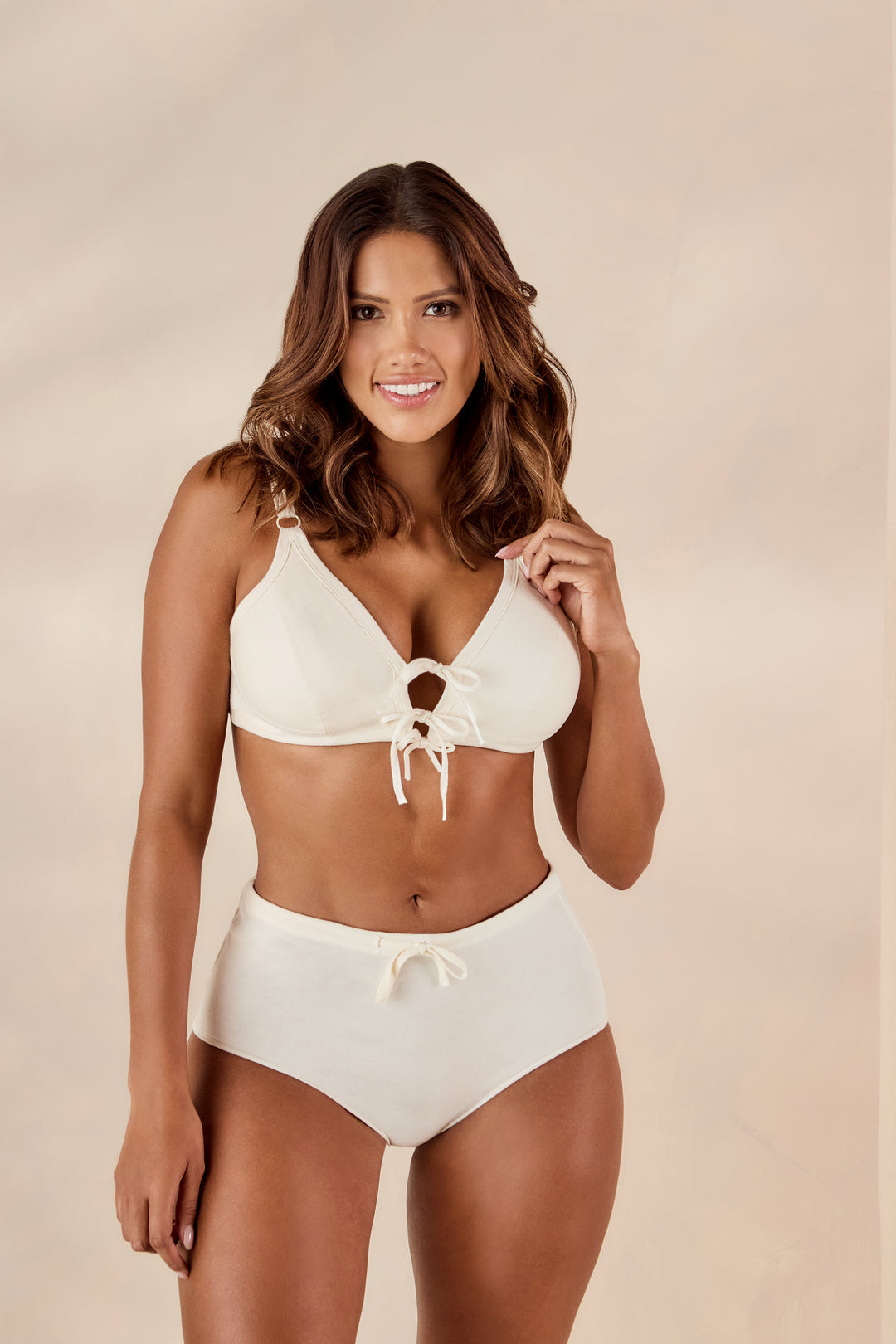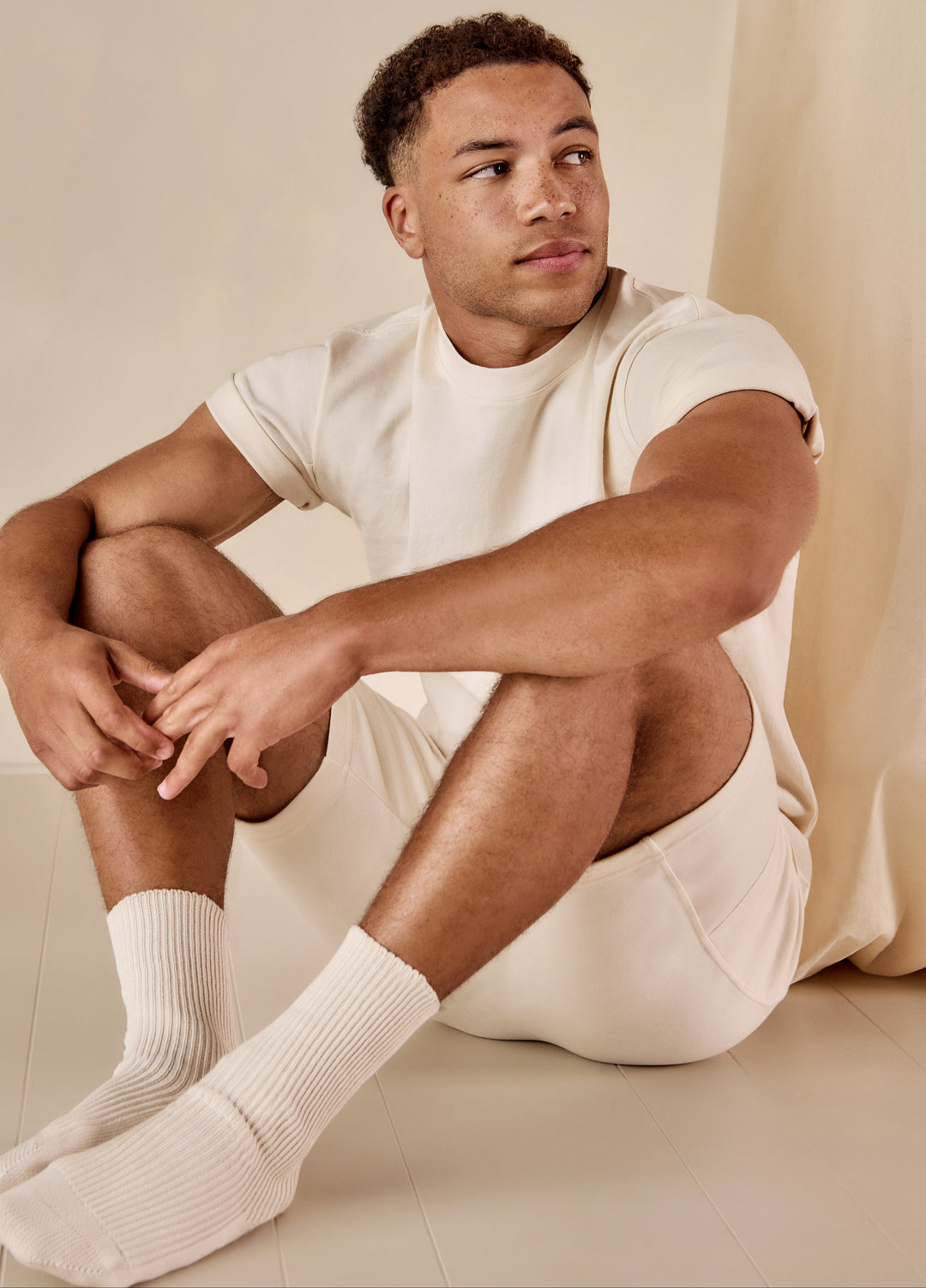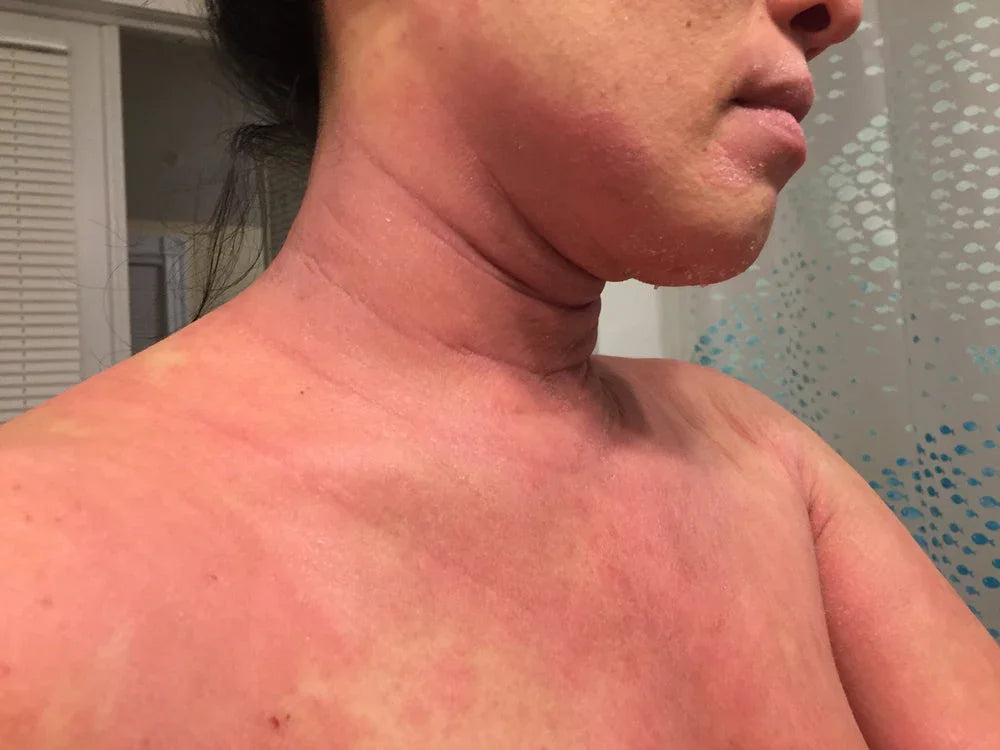The Contact Dermatitis and Clothing Connection
Persons who suffer with dermatitis or sensitive skin have a difficult time living day to day avoiding allergens and the dreaded rash, itching and discomfort that comes with it. I have sensitive skin and prone to develop contact dermatitis at any time often reacting to something next to my skin that I have used for long periods of time. I recently had to discard my favorite pair of pants after months of developing a rash on my stomach and side whenever I wore them. How could this be I said to myself, of all the things in the world to have, why did I inherit this strange skin?
While researching the matter I came across some interesting information regarding contact dermatitis and clothing. It seems there are quite a few people who develop contact dermatitis from formaldehyde resins which are used for textile finishes. Apparently it's pretty common in women but men can also develop the condition if they have sensitive skin. I was amazed and had no idea that formaldehyde was used on fabrics. Can you imagine being allergic to your clothes? If you are experiencing a chronic recurring rash on various part of your body, particularly where clothes fit tightly you may want to contact your Dermatologist and request testing for this sensitivity. The rash can get particularly irritated from perspiration and in areas where the friction of the fabric rubs against the skin.
According to the American Contact Dermatitis Society common eruption sites include the posterior neck, upper back, lateral thorax (part of the body between the head or neck and abdomen), waistband and flexor (fingers) surfaces. It can however appear in other areas like the forehead if you wear a cap that's been treated with formaldehyde.
Formaldehyde is used to make clothing that is wrinkle resistant (permanent press) and these can release significant amounts of the substance. The American Contact Dermatitis Society states that rayon, blended cotton, corduroy, wrinkle-resistant 100% cotton, and any synthetic blended polymer are likely to have been treated with formaldehyde resins. Women's clothing also includes lingerie and undergarments.
Many individuals are allergic to formaldehyde and know to avoid personal care products that contain formaldehyde releasing preservatives. Keep in mind that many pharmaceuticals including OTC drugs also use these same preservatives so it's not limited to skin care products. For those sensitive to formaldehyde clothing can also be a stong source of irritation.
Each country has its own manufacturing standards for acceptable levels for formaldehyde resins. A low indicator of formaldehyde releasing resin would be 75 ppm which is the Japanese standard, the US standard is somewhere near 300ppm, quite a difference.
Fabrics safe to wear: 100% silk, 100% linen (if it wrinkles easy), 100% polyester, 100% acrylic, 100% nylon, spandex, flannel (soft), wool (may cause irritation) and denim.
Do not wear these fabrics: Permanent press, wrinkle resistant, color-fast, stain-resistant, blends (including rayon, polyester-cotton), corduroy or shrink-proof wool.
It is suggested that you read the labels in your existing clothing and separate them in your closet so you will know what's safe to wear. Always opt for loose fitting clothing since friction and perspiration can cause the condition to flare. Read the labels in any new clothing before you purchase. Clothes made in Japan are the safest and companies that sell clothes in Japan also have to meet the Japanese standard.
Companies that meet the Japanese standard: GAP, Old Navy, Banana Republic, Liz Claiborne, Eddie Bauer, Cuddle Duds and Levi Strauss. There may be others but these were on the list from the American Contact Dermatitis Society.
If you suspect that you or a loved one may have this sensitivity please contact your dermatologist to be tested. Also visit the website of The American Contact Dermatitis Society for more detailed information.
Source: Y Walker, http://www.clothing-racks.tk/270165-The-Contact-Dermatitis-and-Clothing-Connection.html








300 comments
My last comment, many companies that sell mens underware forget to tell you they are loaded with chemicals, 100 per cent cotton they say ya right.Formalehyde, Wrinkle resistants,latex , voc,s , resins ,thiuramus, harsh chemicals,heavy metals,Fire retardents, pvc,s,bt cotton just to name a few.Thats why people get skin irritations and rash and suffer for years.
Organic certified cotton is the way to go.
Thankyou. Im just a voice for millions of guys out there who are to proud or macho to speak.
No one has mentioned the dyes used in fabrics which can also cause contact dermatitis. I just received the results from my patch test which showed reactions to many irritants including: perfumes, polyester, cobalt and AZO dyes. My doctor recommended wearing cotton and linen in white or off white colors only, and to be sure to wash new clothing at least three times before wearing. No dryer sheets. My skin improved greatly in a matter of weeks! Goodbye leggings.
I tried several other products to calm a dermatitis flair up to no avail. In just 3 days foderma serum almost completely cleared up a troublesome spot on my neck that had been itchy, red and sore for MONTHS. It has worked better than even the dermalmd the Dr. Gave me! Today I used it on my child who shares my condition and in the last 24 hours she has had a huge improvement on her trouble areas! I have included pics of my neck, the first is day one, the second is day 3. I will warn that the 1st and second day of the healing process the itching definitely went up a notch, by the 3rd day the itching subsided to reveal smooth, healthy skin where it was previously rough, red and painful.
Cotton is one of the worst things you can wear or sleep on if you have dry skin. Cotton absorbs your natural moisture and any products you put on your skin. For YEARS I couldn’t understand why my skin was so dry. I wore cotton because I fell into the whole “it breathes” mind set. Well, thanks to a woman I met, she told me how cotton is so bad for your skin. I told her how wearing cotton gloves over my moisturized hands at night didn’t work, how my feet didn’t stay moisturized after putting a lot of moisturizer on and then put my cotton socks on, how I was starting to get all of these strange little wrinkles on my face. She said, “honey, NEVER wear or sleep on 100% cotton, it sucks the life out of your skin because it’s so absorbent.” She told me to get blends. I did what she said and now my skin is as healthy as ever. I never would have dreamed that cotton was causing me problems. I started sleeping on satin pillow cases and my face wrinkles cleared up and my hair wasn’t a tangled mess in the morning. I’ll NEVER go back to 100%, it destroyed my skin. My grandson had eczema and my daughter was told to have him wear all cotton. It just kept getting worse and worse. I told her to try blends so his skin wouldn’t dry up so much. Guess what, eczema disappeared.
Thank God for all the input. I’m retired and this just started for me 2 years ago. One night I had such a bad, burning rash on my chest I almost went to the ER. Epsom soaks helped a bit. I did the usual avoid-then-bring-back things to my environment. Two things regularly occurred. Anytime I was in a closed environment with another’s previously worn clothes, the itching started. I volunteer at a women’s center and clothing drives are popular. Some clothes caused this, some did not. The next was a person’s natural smell (sometimes after hugging someone). I’d be itching by the time I got home. Over the past few months, I’m fine as long as I’m out and about in places where fresh air is moving; then as soon as I’m home for the night, it starts up again. My first thought is: Am I allergic to my apartment? Seriously?? Then I realized that everytime I sat in my (old courduroy) chair, BANG!! Itching! That’s why I researched, then ultimately found, this web site. Thank you, thank you for all your insight as well as tried-and-true (or tried-and-failed) suggestions My PCP also does not know; he recommended an antihystamine as well. Onward to a solution!! Thanks again for all your input.
…
51
…